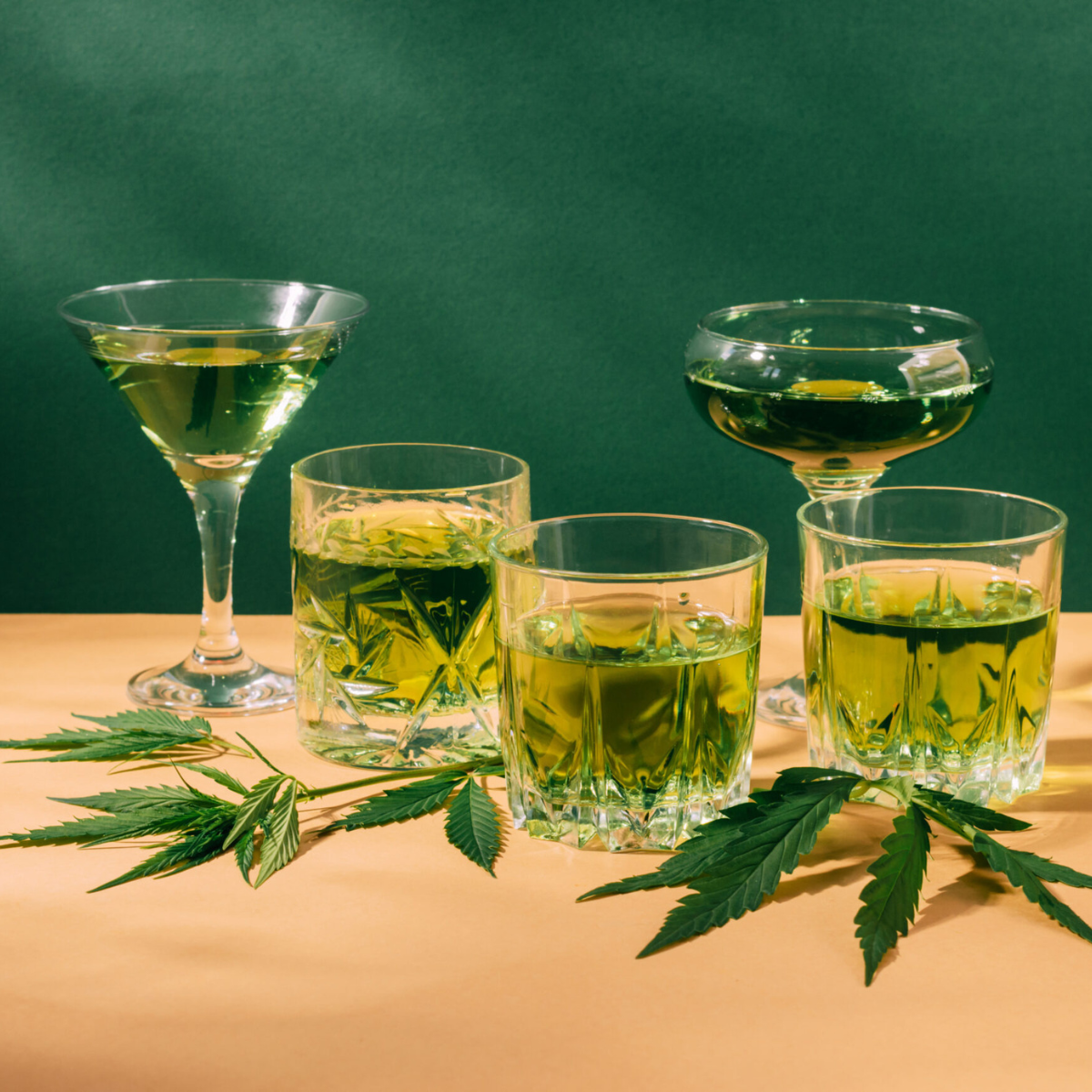
THC Beverages vs. Alcohol: How Do They Compare?
The rise of THC-infused beverages is shaking up the world of social drinking. Once confined to edibles or vape pens, cannabis has entered the drink cooler—offering a refreshing, discreet, and often healthier alternative to alcohol. As more consumers seek alternatives to traditional booze, THC drinks have emerged as a viable option for relaxation, recreation, and even creativity.
But how do these cannabis-infused drinks compare to alcoholic ones? Are they just a novelty—or the future of social indulgence? Let’s explore how THC drinks stack up against alcohol in terms of effects, safety, health impact, dosing, and more.
🍻 The Basics: What Are THC Beverages?
THC drinks are beverages infused with tetrahydrocannabinol (THC)—the psychoactive compound in cannabis that produces a high. These drinks come in many forms, including:
-
Seltzers and sparkling waters
-
Teas, lemonades, and juices
-
Mocktails or THC cocktails
-
Sodas, coffees, or even hot chocolates
They’re made using nano-emulsified THC, which allows the compound to be water-soluble. This gives THC drinks a faster onset than edibles, usually between 10–30 minutes, depending on your metabolism.
🧠 How Do the Effects Compare?
🎉 Alcohol:
Alcohol is a central nervous system depressant. It lowers inhibitions, slows reflexes, and impairs motor function. It can also cause aggression or emotional shifts depending on the user and environment.
🌿 THC Drinks:
THC produces euphoria, altered sensory perception, relaxation, and in some cases, creativity or introspection. Unlike alcohol, it doesn't impair motor function in quite the same way, though higher doses can cause drowsiness or anxiety.
| Effect | Alcohol | THC Drink |
|---|---|---|
| Onset Time | 5–15 min | 10–30 min |
| Duration | 1–3 hours | 2–4 hours |
| Common Feelings | Buzzed, sociable, disinhibited | Relaxed, euphoric, focused |
| Potential Side Effects | Hangover, nausea, aggression | Anxiety, dry mouth, couch-lock |
⚖️ Dosing: How Much Is Too Much?
Alcohol:
Alcohol dosing is imprecise. A glass of wine may contain 12% ABV, a beer 5%, and a cocktail far more. Factors like body weight, food intake, and speed of consumption all influence intoxication. It’s easy to go overboard without realizing it—leading to blackouts or worse.
THC Beverages:
THC drinks are precisely dosed. Most contain 2.5mg to 10mg of THC per serving. That allows consumers to “microdose” (2–5mg) or go higher based on their tolerance. For new users, a 5mg dose is roughly equivalent to a glass of wine or beer.
Because effects are delayed, the golden rule with THC drinks is: start low and go slow. Wait at least 45 minutes before drinking more.
🧬 Health & Safety: Which Is Safer?
🍷 Alcohol:
-
Causes dehydration, liver strain, and contributes to over 140,000 deaths per year in the U.S.
-
Linked to hangovers, addiction, and increased cancer risk.
-
Long-term use can damage the brain, liver, and heart.
🍃 THC:
-
Does not cause hangovers or dehydration.
-
THC has no known lethal dose.
-
Overuse can lead to temporary anxiety, paranoia, or fatigue.
-
Long-term risks are lower than alcohol, but regular use may impair memory or motivation in some users.
Overall, THC drinks have a significantly lower health risk profile than alcohol when consumed responsibly.
👥 Social & Cultural Appeal
THC drinks offer an inclusive alternative for people who don’t enjoy alcohol but still want to participate in social rituals—like sipping a drink at a party or happy hour.
They’re:
-
Discreet (look just like seltzers or sodas)
-
Low calorie (many are 5–25 calories per can)
-
Hangover-free
-
Customizable (varying THC and CBD ratios)
More bars, music venues, and restaurants in legal states are now offering THC mocktails or infused seltzers as a sober-curious alternative to booze.
⚠️ Drawbacks to Consider
THC Beverages:
-
Still illegal federally and in many U.S. states.
-
Can impair driving and reaction time (just like alcohol).
-
Effects may vary more based on individual metabolism.
Alcohol:
-
Much more widely available and culturally accepted.
-
Easier to overconsume in binge settings.
-
Long-term health effects are far more severe.
🏁 Final Thoughts: Should You Switch?
If you're looking for a cleaner, safer, more intentional alternative to alcohol, THC beverages might be your perfect match. They’re controlled, lower-risk, and offer a modern way to unwind—without the next-day regret.
That said, both substances should be approached with mindfulness and moderation. The key difference is that THC beverages allow for a more predictable and gentle experience, while alcohol—though more familiar—carries more health and behavioral risks.
So next time you're reaching for a drink, ask yourself: Do I want a buzz or a bliss?
You just might find your answer in a chilled can of cannabis-infused seltzer.
